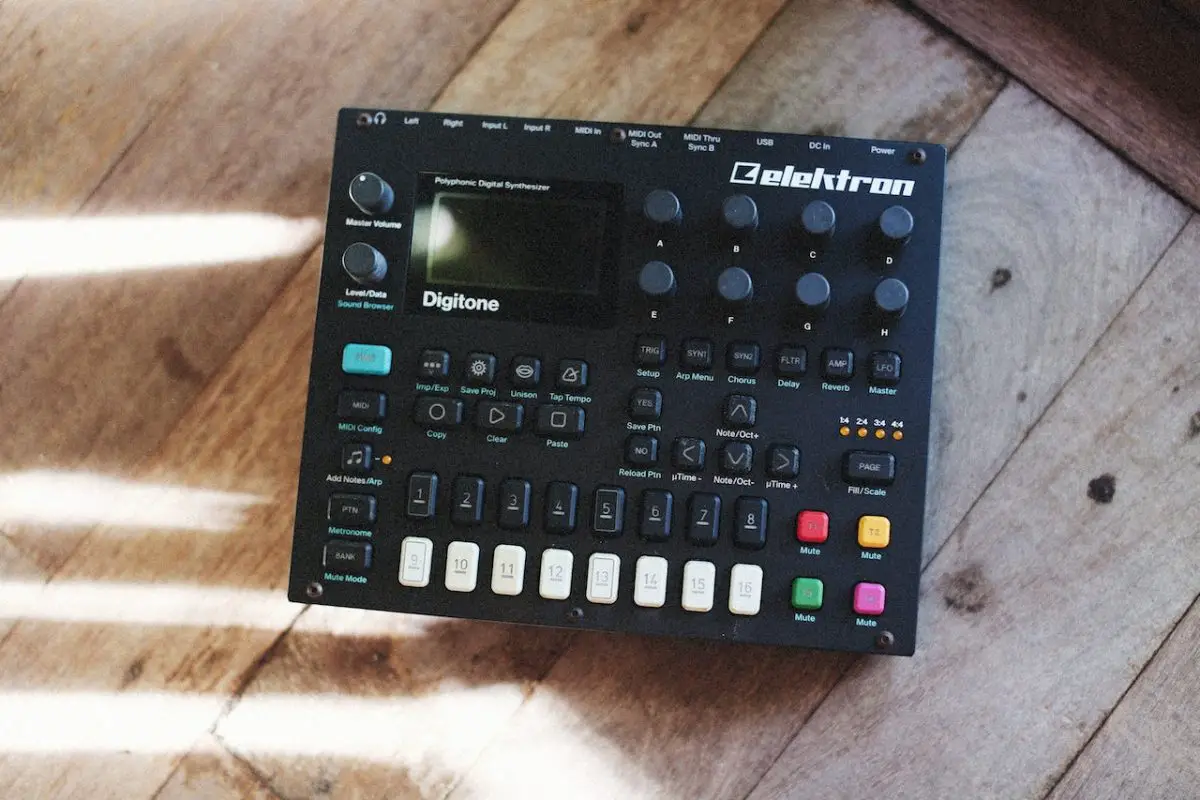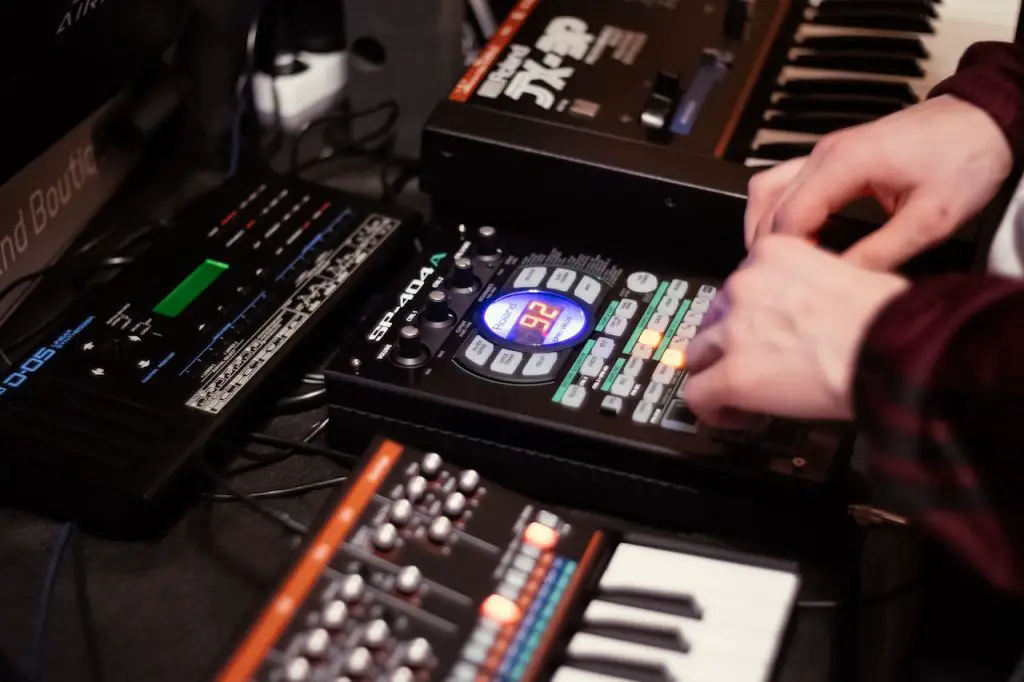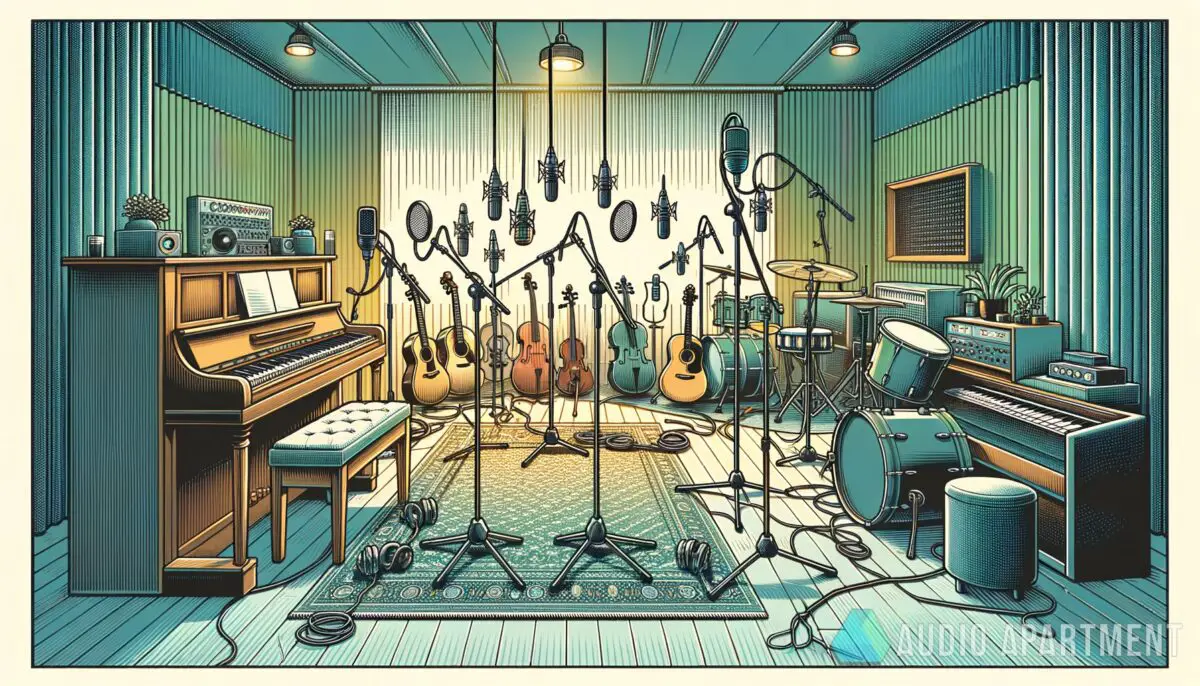Do you want to add a powerful audio interface to your studio but don’t want to spend a lot of money? If so, you might be interested in buying a used audio interface. Used audio interfaces can be a great option if you’re on a budget, and they offer many of the same features as more expensive models.
This article covers the pros and cons of buying a used audio interface and helps you decide if it’s the right choice. So if you’re looking for an affordable audio interface, this post is for you!
Should you buy a used audio interface? Yes, without a doubt, if you can locate a decent one. You may find several previously-owned interfaces that continue to function properly. Just make sure it suits your demands.
What is an audio interface?
A microphone, instrument, or other audio equipment can’t communicate with a computer without an audio interface. In the same way, you need an audio interface to record high-quality audio into your DAW and send the signal back out through the speakers.

Music and instruments are recorded via an analog-to-digital (A/D) conversion process when connected to an audio interface. A digital-to-analog (D/A) conversion is performed when the signal is sent back to your headphones or speakers. Such converters are crucial to the success of an interface. Today, there are many varieties of interfaces available, each with its own set of inputs, outputs, and other characteristics.
AKAI Professional MPK Mini MK3

AKAI Professional MPK Mini MK3
Should you buy a used audio interface?
If you’re in the market for an audio interface, you must consider the device’s age and condition before making a purchase.
Compared to brand-new audio interfaces, used ones may be found at a lower price and sometimes in better condition. But make sure to look at the hardware carefully before you buy it because it may have blemishes or other flaws that don’t show up right away. Also, remember that some older interfaces may not work with the most up-to-date programs and add-ons.
…if you can locate a secondhand audio interface in decent shape that fits your price range, you should consider making the purchase.
In general, if you can locate a secondhand audio interface in decent shape that fits your price range, you should consider making the purchase. On the other hand, if you can’t locate a secondhand interface that works for you, you may buy a brand-new one.
What to consider when buying a used audio interface
An audio interface is a critical component in a studio setup, acting as the hub for audio signals from various sources before routing them to speakers or headphones. When selecting an audio interface, consider these five criteria: inputs/outputs, budget, build quality, features, and sound quality.
1. Inputs and Outputs
Determine your required inputs and outputs based on your needs. For a singer-songwriter who travels, a single mic pre and a DI on a bus-powered interface like the Audient iD4 may suffice. Larger studios may need more line-level inputs and outputs, as well as digital I/O such as S/PDIF or ADAT.
2. Budget
While financial limitations often dictate studio equipment choices, remember that investing in a quality audio interface can pay off in the long run. Don’t compromise on audio quality by selecting a subpar interface.
3. Build Quality
Opt for a durable and reliable audio interface, preferably with metal chassis and knobs. Pay attention to the feel of the buttons and dials, as you’ll be using them frequently.
4. Features
Look for features like low-latency mixing and controls for monitoring, intuitive software for easy setup, and DAW control capabilities. Some interfaces also come with pre-installed software or freebies from the manufacturer.
5. Sound Quality
Evaluate sound quality by examining metrics like Total Harmonic Distortion plus Noise (THD+N), dynamic range, and frequency response. Lower THD+N values and higher dynamic range figures indicate better performance. Aim for a flat frequency response between 20 Hz and 20 kHz, and ensure that the advertised specifications align with the AES17 standard.
Advantages and disadvantages of buying a used interface
When considering a used audio interface, it’s essential to weigh the advantages and disadvantages to make an informed decision that aligns with your project needs and budget constraints.
Advantages
Understanding the benefits of purchasing a used audio interface can help you make a better choice:
- Cost: Buying a used audio interface can save you money in the short term and possibly in the long run. It can alleviate the initial financial pressure of setting up a studio.
- Higher-quality models: You may find a used, higher-quality model at the same price or less than a brand-new, lower-quality one, which can be ideal if sound quality, connections, and capabilities are essential to you.
- Temporary use: A used option can be a perfect stopgap solution if you don’t require a permanent audio interface but need one occasionally.

Disadvantages
However, there are also potential downsides to purchasing a used audio interface:
- Lack of warranty: Used audio interfaces may not come with warranties, which means you won’t have protection if the device malfunctions or experiences issues.
- Outdated technology: Used models might not have the latest features or technological advancements, which could limit your capabilities or negatively impact your work.
- Wear and tear: Pre-owned audio interfaces might have undergone wear and tear, which could affect their performance and longevity.
- Uncertain sound quality: Ensuring that older devices have the necessary sound quality can be challenging. Although used audio interfaces can save you money, it’s essential to verify the desired quality in the used section, as you may not always get what you pay for.
Types of inputs and outputs in audio interfaces
Audio interfaces act as a bridge between your computer and the world of analog audio equipment. They offer a variety of inputs and outputs to suit different recording needs. This table explores the most common types of inputs and outputs found in audio interfaces. Understanding the different types of inputs and outputs available can help you choose the right audio interface for your recording needs.
| Type of Input/Output | Description |
|---|---|
| XLR Input | XLR inputs are typically used for microphones. They provide a balanced connection that helps eliminate unwanted noise and interference. |
| TRS Input | TRS inputs are typically used for instruments like guitars and keyboards. They offer a balanced or unbalanced connection, depending on the device. |
| RCA Input/Output | RCA inputs and outputs are typically used for consumer-level equipment like CD players and turntables. They offer an unbalanced connection. |
| MIDI Input/Output | MIDI inputs and outputs are used for electronic instruments like keyboards and drum machines. They transmit data rather than audio signals. |
| USB Input/Output | USB inputs and outputs are used to connect the audio interface to a computer. They offer a digital connection and are commonly found in modern audio interfaces. |
| SPDIF Input/Output | SPDIF inputs and outputs are used to connect digital audio equipment. They offer a high-quality digital connection and are commonly found in professional audio interfaces. |
If you want even more tips and insights, watch this video called “What Recording Interface should I buy?” from the SpectreSoundStudios YouTube channel.
Frequently asked questions (FAQ)
Do you still have questions about whether you should buy a used audio interface? Below are some of the most commonly asked questions.
What is the difference between a cheap and an expensive audio interface?
Less expensive interfaces will allow you to hear more of the original tone of your voice or instrument. On the other hand, more of the above features (color, warmth, depth, etc.) will be added to interfaces that cost more. The interface’s variety of inputs and outputs also sets it apart.
Does the audio interface reduce lag?
For the most part, latency may be reduced by using an audio interface. A computer’s or laptop’s sound card might not work as well as an external audio interface. Even low-end audio interfaces may drastically cut latency compared to no interface at all.
Where can I buy a used audio interface?
One option is to check online marketplaces such as eBay, Amazon, or Craigslist. These platforms allow you to browse through a variety of options from different sellers and compare prices. However, it’s important to be cautious when purchasing from private sellers as you may not have any warranty or return options. Another option is to check out music gear websites such as Reverb, Sweetwater, or Guitar Center. These websites often have a section for used gear where you can find audio interfaces from reputable sellers. They also offer some degree of buyer protection and may have return policies, so you can feel more secure with your purchase. Finally, consider checking out local music stores or pawn shops in your area. While the selection may be more limited, you may be able to find a great deal on a used audio interface, and you can inspect the device in person before buying it.
Conclusion
And there you have it, folks! Used audio interfaces are a good option if you’re looking for an affordable way to start recording or mixing music or sound effects. Just make sure you do your research first and consult with an expert if you have any doubts about whether or not a used audio interface is right for you.
So, have you tried buying a used audio interface? And did I cover everything you wanted to know? Let me know in the comments section below (I read and reply to every comment). If you found this article helpful, share it with a friend, and check out my full blog for more tips and tricks on music production. Thanks for reading, and never stop making music.
Key takeaways
This article covered whether you should buy a used audio interface. Here are some key takeaways:
- A microphone, instrument, or audio equipment can’t communicate with a computer without an audio interface.
- If you’re in the market for an audio interface, it’s vital that you give some thought to the device’s age and condition before making a purchase.
- Some of the advantages of buying a used audio interface are its cheaper cost and a good option if you just need a temporary one.
- Some disadvantages of buying a used audio interface are that it lacks a warranty and can have outdated technology.















